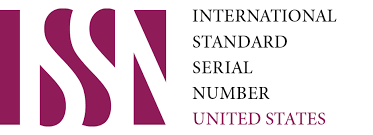The Impact Of Module-Based Instruction On B2 Level Students' Monologue Speech
DOI:
https://doi.org/10.62480/tjpch.2024.vol37.pp36-40Keywords:
module-based learning, English monologue speech, B2 levelAbstract
This article investigates how module-based education enhances philology students' monologue speech abilities at the B2 level. Breaking down the complicated skill of delivering monologue speech into smaller modules allows students to focus on specific components of language creation and delivery. The study looks at how this strategy improves students' pronunciation, fluency, vocabulary, and overall communication skills. The study aims to provide empirical evidence of the benefits of module-based education in improving students' monologue speech abilities by analyzing quantitative data.
References
Almazova, N., Sheredekina, O., Odinokaya, M., & Smolskaia, N. (2021). The Educational Technology
of Monological Speaking Skills Formation of Future Lawyers. Education Sciences, 11(7), 330.
https://doi.org/10.3390/educsci11070330
Brown, H.D. Teaching by Principles: An Interactive Approach to Language Pedagogy, 2nd ed.; San
Fransisco State University: San Fransisco, CA, USA, 2001.
Dilafruz, S. (2024). INNOVATIVE TECH SOLUTIONS FOR MONOLOGUE SPEECH
DEVELOPMENT OF B2 LEVEL ENGLISH LEARNERS. Hamkor konferensiyalar, 1(6), 179-182.
https://doi.org/10.5281/zenodo.14201293
Dochy F, Open Univ. H, (2013). And O. Modularization and Student Learning in Modular Instruction
in Relation with Prior Knowledge. [serial online]. January 1, 1989; Available from: ERIC, Ipswich,
MA. Accessed May 14
Doe, T. Oral Fluency Development Activities: A One-Semester Study of EFL Students; ProQuest
Dissertations Publishing, Temple University: Philadelphia, PA, USA, 2017; p. 276.
Gahutu, J. (2010). Physiology Teaching and Learning Experience in a New Modular Curriculum at the
National University of Rwanda. Advances In Physiology Education, 34(1), 11-14.
Ibyatova, Lyaysan & Oparina, Ksenia & Rakova, Elena. (2018). Modular Approach To Teaching And
Learning English Grammar In Technical Universities. Society. Integration. Education. Proceedings of
the International Scientific Conference. 1. 139. 10.17770/sie2018vol1.3229
Kakurina, O. A. (2012). O modul'noj tehnologii obuchenija inostrannym
jazykam.http://pskgu.ru/projects/pgu/storage/wt/wt111/wt111_14.pdf.
Karpovich, Irina & Sheredekina, Oksana & Krepkaia, Tatiana & Voronova, Larisa. (2021). The Use of
Monologue Speaking Tasks to Improve First-Year Students’ English-Speaking Skills. Education
Sciences. 11. 298. 10.3390/educsci11060298.
Tseng, S., Su, J., Hwang, G., Hwang, G., Tsai, C., & Tsai, C. (2008). An Object-Oriented Course
Framework for Developing Adaptive Learning Systems. Educational Technology & Society, 11(2),
-191.
Yotovska, Kamelia. (2013). MODULE-BASED APPROACH FOR DESIGN OF M-LEARNING
COURSE. XI-th International Conference on Challenges in Higher Education and Research in the 21st
Century. Sofia, Bulgaria. 43-46.
Downloads
Published
Issue
Section
License

This work is licensed under a Creative Commons Attribution-NonCommercial 4.0 International License.
User Rights
Under the Creative Commons Attribution-NonCommercial 4.0 International (CC-BY-NC), the author (s) and users are free to share (copy, distribute and transmit the contribution).
Rights of Authors
Authors retain the following rights:
1. Copyright and other proprietary rights relating to the article, such as patent rights,
2. the right to use the substance of the article in future works, including lectures and books,
3. the right to reproduce the article for own purposes, provided the copies are not offered for sale,
4. the right to self-archive the article.












